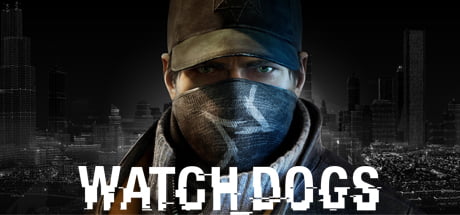You don’t need, really, to hear anything about Watch_Dogs. You can make the case there’s no reason for me to be going over something that’s so well-explored and well-covered as this game. Perhaps another writer who finds the game a deep and personal love may come back to it with an eye towards the games’ inner life and maybe find something to love. I don’t think I’m going to be that guy, though. I’m the guy who inspects the game, experiences the game, and mainly tries to see if I have anything new to complain about.
Fortunately, I kind of do.
#fff, 1px -1px 0 #fff, -1px 1px 0 #fff, 1px 1px 0 #fff; -webkit-text-stroke: 1px white; padding: 30px;">The General Complaints
There’s been plenty of writing about Watch_Dogs and its failings. I guess I should put it out there first and foremost that yeah, this game isn’t actually very fun as a game. I’m going to belt down some points here presented as just part of the laundry list in ways that I don’t see anyone else complaining about when they want to talk about greater points of surveillance and technology or whatever.
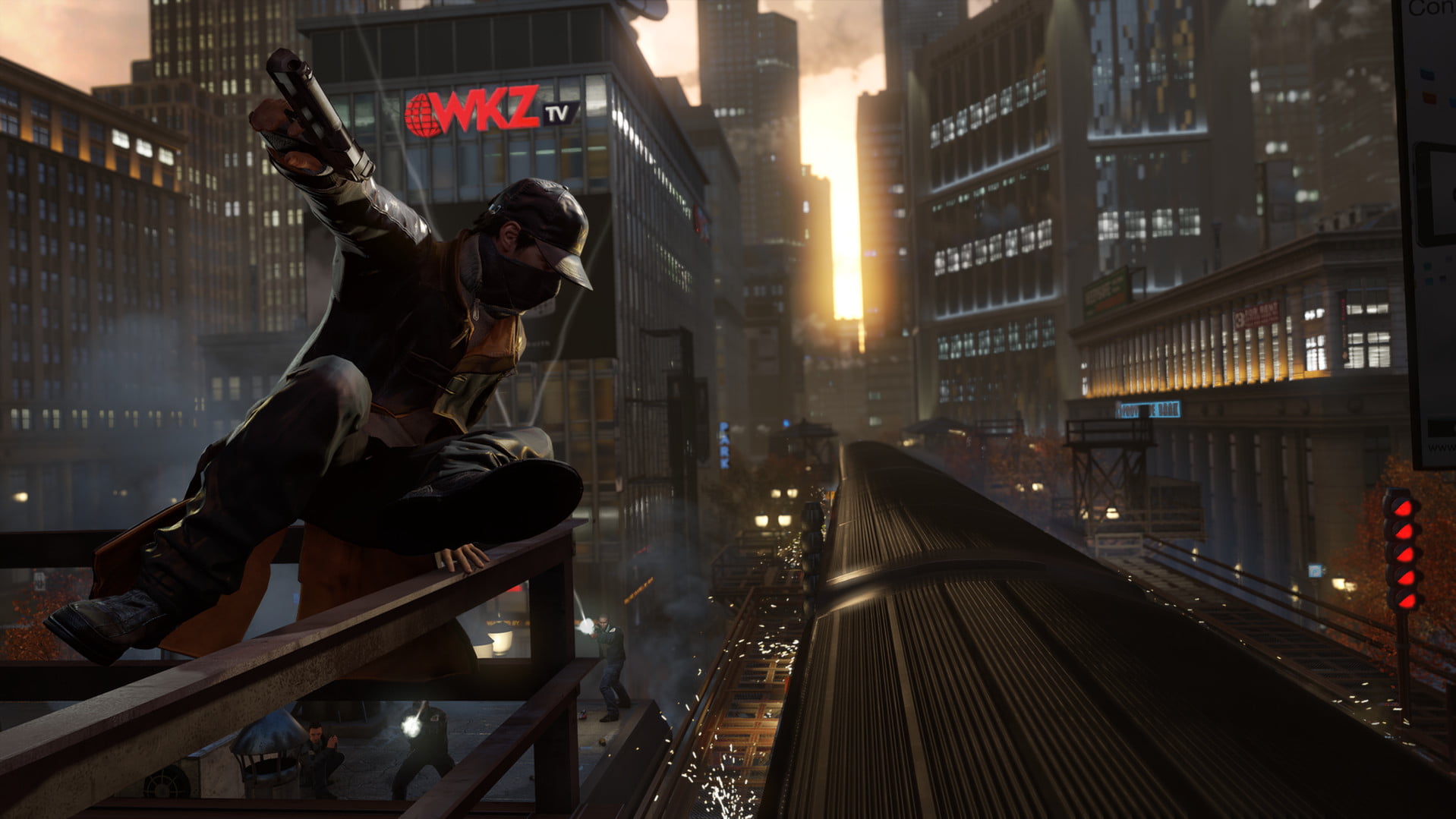
The interface sucks. You have this 3d space populated with 3d objects, and your phone interface widgets and overlays are all 2d objects pinned to objects in the space around it. It’s kinda a neat effect in principle because it means that people get these 2d decals on them that hover around and give you information on them in real time like, well, like, what we call ‘futuristic.’ Thing is though, as an interface for playing the game it’s really bad! You’re surrounded by context-sensitive cues and button prompts, all over the place, hack this, hack that, get in this, get in that, climb this or that – it’s not like the interface can’t be smooth or familiar, but as a first experience it’s extremely hostile.
The cars drive like garbage. In a game that wants to seem like today, the cars fling around the scenery and there’s no ramifications for driving in a way that this surveillance state city would absolutely be tracking, and that’s if you can deal with the way you just… bounce around the road at high speeds. I mean really, if we’re talking about a setting that’s meant to be so heavily observed by computers, meant to feel ‘real’ and ‘relatable’ the way that you get around in the space like it’s made of play-dough should have killed the entire vibe.
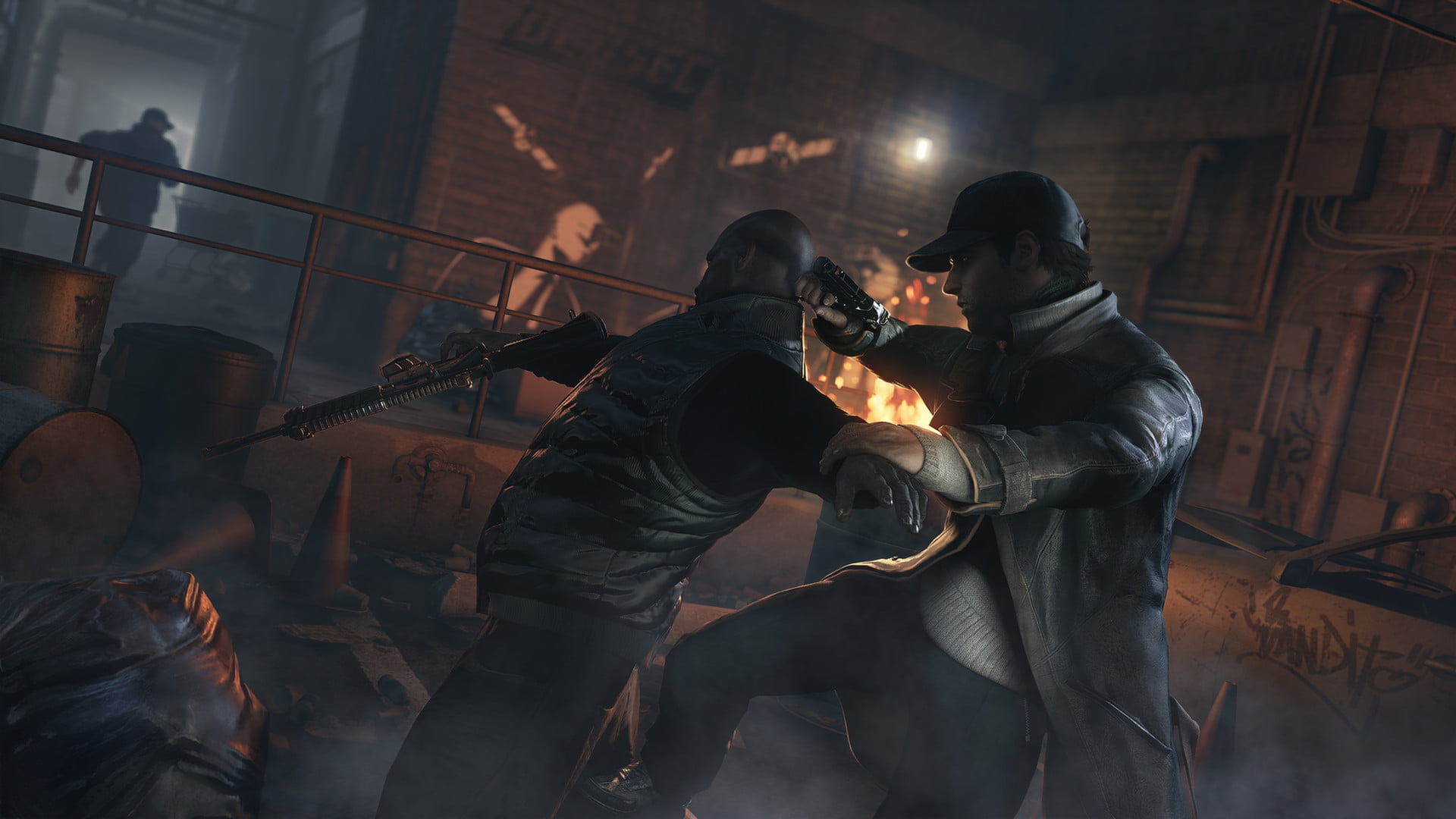
Oh, and the way the game presents the life and accoutrements of Aiden Pierce presents him as an asshole, or at least, an asshole’s idea of a cool person. He derides Jordi for wearing a suit and taking his appearance seriously while his own appearance is so exquisitely tailored. He sleeps in a bed with a pile of electronics on the foot of the bed, which is plugged in, suggesting that he somehow sleeps completely still. He thrashes and rages and punches walls while he’s on his own in a private hotel room, he spies on his family, he tortures people and this is all in the first few minutes.
Oh, and this is a game that hates women. It might not be made by misogynists, but the game itself, as its worldview, is one that hates women.
With that out of the way – you know, just the rudimentary kind of massive complaints you’d normally use to throw a game out of the window – there’s yet more. See, while most analyses of the story of Aiden Pierce take on the cast of the story as a sort of modern dystopian vigilante story, comparing his actions to a context of cops and criminals, the story of the setting at the last minute tries to tell us, with a final flourish, is that it’s actually the story of Aiden Pierce, a superhero origin story – in the vein of your Spiderman and Batman Begins.
#fff, 1px -1px 0 #fff, -1px 1px 0 #fff, 1px 1px 0 #fff; -webkit-text-stroke: 1px white; padding: 30px;">The Traits of A Superhero
Okay, hey, let’s do a real quick rundown of the kind of things Aiden does and compare it to Superhero stories. I’m not going go down the full list of things that I covered with Clay on From The Rooftops but let’s give you a short summary. A superheroic character needs:
- A connection to the real world and modern day that makes the actions and values of the setting comparable to ours. Superheroes need to be like people we can relate to and have problems like ours in the real world.
- A default state of doing superheroic stuff. By default, when you’re not paying attention to a superhero, you can assume they’re busy superheroing.
- They have to be somehow explicitly separated from the population, something that ensures they are exceptional.
- An anchor to a normal, everyday life that keeps them engaged with the reality that everyone else exists in. This can be a secret identity, or just some other thing that gives them a normal life.
Okay, so let’s see. Does Aiden exist in a world connected to ours? Well, kind of. I personally found my ability to see the worlds as connected broken by the driving. Let’s give this one a mulligan.
Is Aiden, by default, Doing Superheroic Stuff? The game frames his time as split between pursuing the killers of his niece, and his vigilante work where he finds people who haven’t yet committed crimes, beats them for money, and flees. He does, in a way, go out and ‘pursue crime.’
Of course, Aiden’s patrolling and pursuit of crime is done with the highest of goals in mind, right? After all, being a superhero is in part about having an ideal, having a purpose, right? You go out to fight crime, to oppose the problem. You may have a vendetta of your own, you may have a higher cause, but you do what you do in the name of changing the world from what it is.
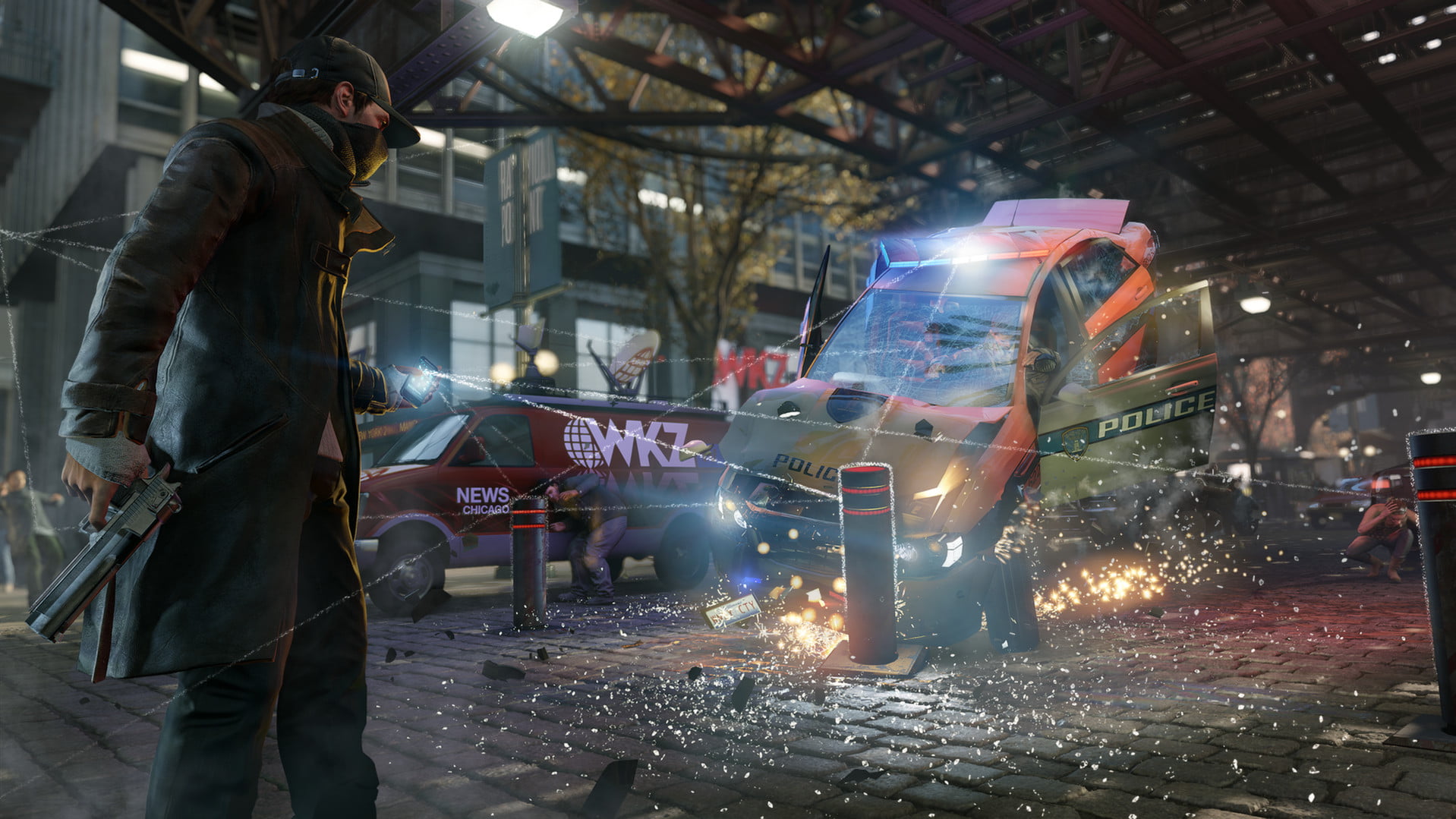
Aiden doesn’t.
Aiden patrols because he’s bored.
It’s in his establishing of the mechanic. He does it to fight boredom.
And that’s not all he does as his default action. Everywhere you go around, you can jack the accounts of random strangers, pickpocketing digitally as you go, until you reach an ATM and you can cash them out. You can judge people you look at based on their single factoid before you decide whether to take their money. These accounts often have a hundred bucks, fifty bucks, twenty bucks in them. You can take the last dollars of people struggling from paycheque to paycheque and the game makes no indication that it’s not something that Aiden would do. Worse, it’s made clear it isn’t money Aiden needs! He can pay for equipment and his room – the money is only for upgrades, for perks. There’s even an upgrade you unlock just by stealing.
It’s also constant.
Is Aiden unique? No. He’s using replicable technology. He’s using mass produced technology. Other hackers he meets can do the things he wants to do. Other people are more capably violent. The story wants to paint Aiden as some sort of vigilante everyman, but in so doing it makes it so literally anyone else in the world could do what he’s doing and it would have the same impact. Maybe, someone who isn’t a total jerkhole could replace Aiden.
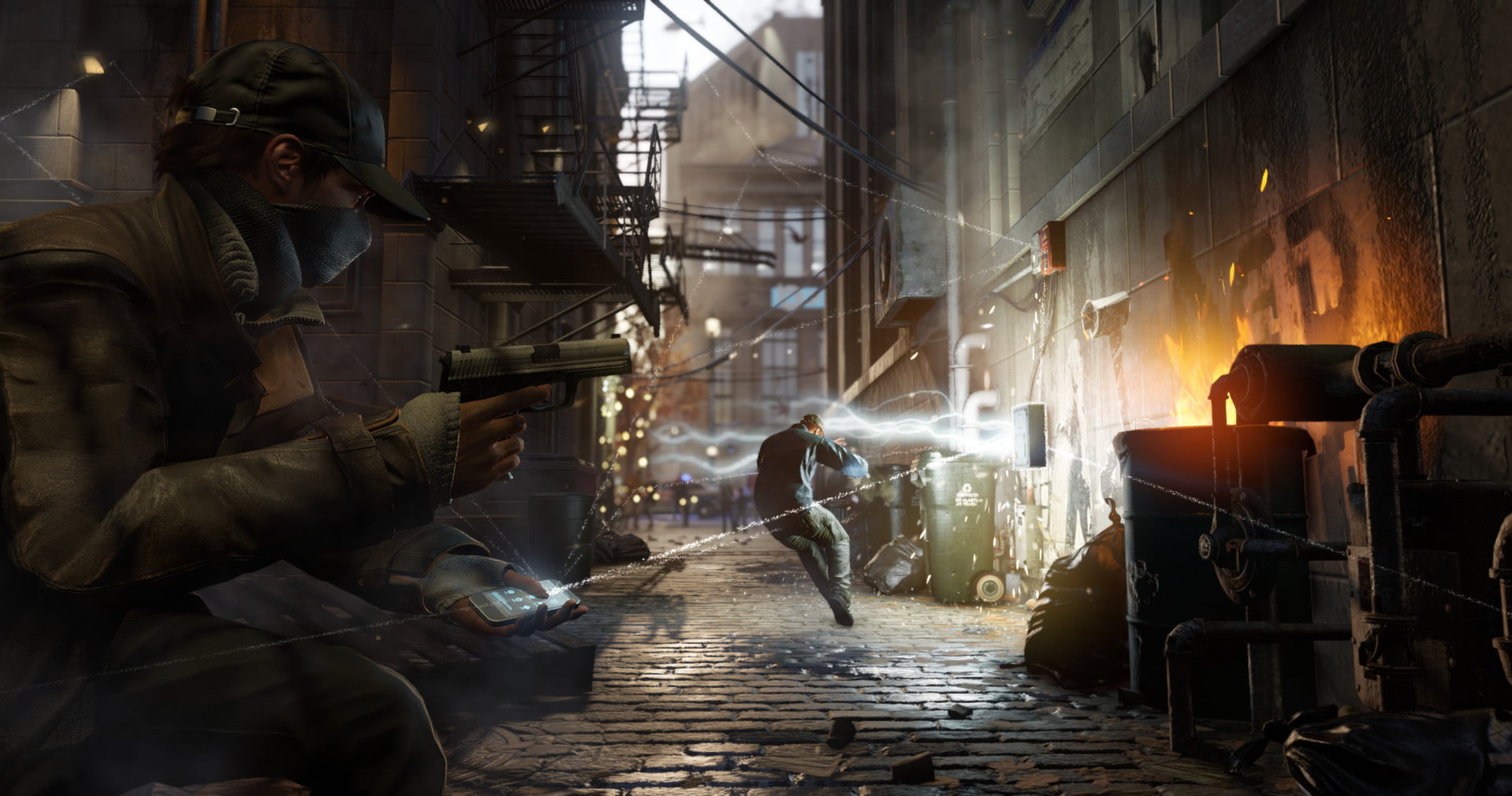
Does he have an anchor to the real world? Does he have something that keeps him connected to and part of the world as we understand it? Not really. All the representations of his ‘normal’ life show it as under strain as he endangers, lies to, endangers more, then lies to again the people that matter to him. They are not people he cares about, they are things he protects.
The world kinda fits. Aiden’s natural status quo behaviour only fits the most Punisher-esque descriptor of heroic. His powers don’t make him exceptional. And his anchor to normalcy isn’t something he cares about at all!
If we accept the idea that Aiden is a superhero, he’s basically Steve Ditko’s Mr A –
A colossal asshole, whose whole world bends to try and justify his existence and it can’t even do that.
#fff, 1px -1px 0 #fff, -1px 1px 0 #fff, 1px 1px 0 #fff; -webkit-text-stroke: 1px white; padding: 30px;">A World of Objects
There is one final point in all of this. It’s a bit of a point, a weird one, but it is one worth talking about. In a video world this would be like a little rider, thrown in at the end for people who don’t want the video to be over yet.
We talk about objectification in media, which is the way that people are turned into objects for the story. I gave a quick rundown on the properties of objects, and I don’t need to rehash that here. It’s not even a bad thing to objectify game entities – you need to be able to handle and manipulate playing pieces, for example, so whether or not the piece has its own intention is not very important. It’s fine for games to need objects.
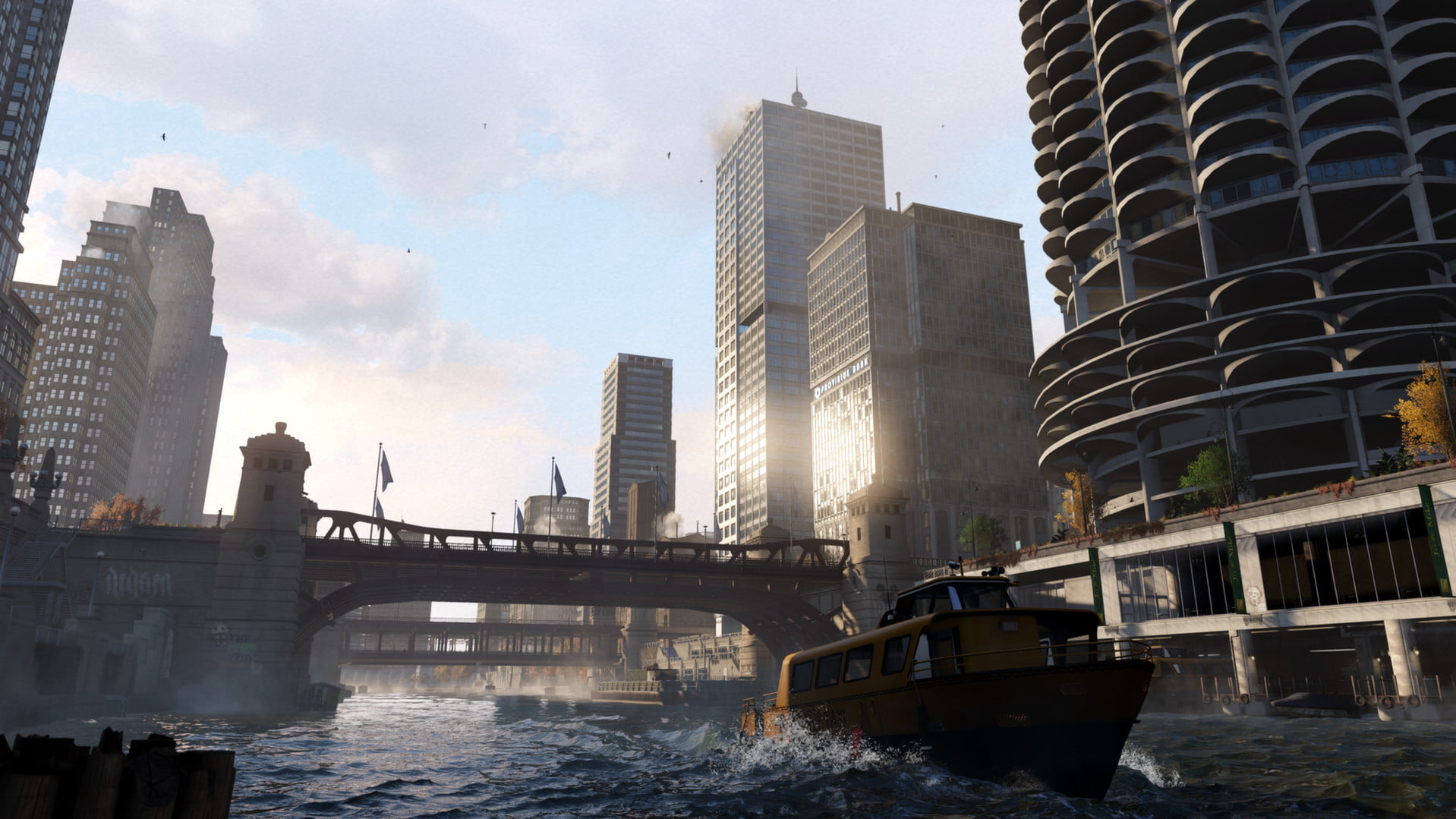
What’s weird – what’s extremely weird – is that Aiden treats people like objects.
The phone system you use, the thing that translates details from the world around you into information in the interface, it lets Aiden interact not with people, but with… things. People who are absolutely committed to a course of action in terms of what they are and what they do. They are little bags of cash, plot flags, pinatas you unlock money or information out of. They are things you bump into and bounce against as you do other things. They deliver cars to you with very little risk. They bring you money when you need to harvest it.
And to Aiden, that’s how the world works.
#fff, 1px -1px 0 #fff, -1px 1px 0 #fff, 1px 1px 0 #fff; -webkit-text-stroke: 1px white; padding: 30px;">Verdict
This is one of the most unnecessary pieces I’ve ever written, really. You know full well if you’re going to try Watch_Dogs out, and you know you probably won’t. It’s not a controversial game, there’s not a secret gem fit to be understood. The only thing remarkable about Watch_Dogs after this exploration is the thoroughness of its failure.
This is a game whose postmortem in ten years will be interesting, but it will likely never happen. It is a project of such immense scope that you’re left wondering just how it is possible that it went as wrong as it did. Was this intentioned? Was this a mistake?
What happened?
Watch_Dogs is available on Steam.
Verdict
Get it if:
- You… you just…
- I mean it is a big game for a really modest price now…
- … and I suppose Jordi is kinda cool…
Avoid it if:
- Probably for the best, really. Everything this game wants to do, some other game is doing better.
